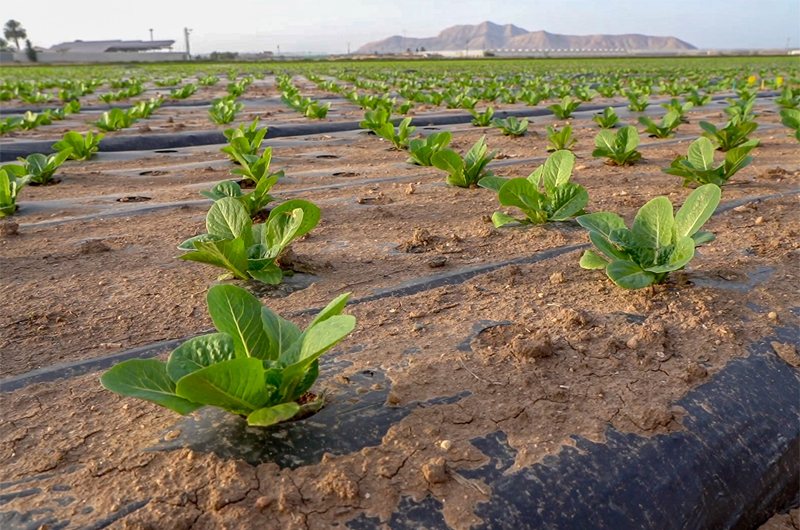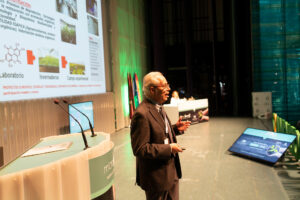Speaker: Monica Partridges. Ceres Biotics
The presentation of Mónica Perdices, framed in the thematic block dedicated to Fertilizers of microbial origin, will describe the work that is being developed specialized, on one hand in the selection of endophytic strains from soils and crops from different parts of the peninsula, and on the other, in the interaction mechanisms of this specific type of microorganisms and their host cultures.
Through this program developed by Ceres Biotics, with the innovative SME seal, it has been possible to isolate, select and dispose of a large stock of endogenous PGPB deposited in official collections that will entail multiple benefits for an increasingly technical and respectful agriculture. environment
Once the mechanisms of action of endophytic probiotics are known in depth, and after optimizing the scaling of their production in the laboratory, avant-garde biofertilizers are obtained in the fermentation plant. Finally, after a phase of trials and agronomic development, the research, converted into a commercial product, reaches its final objective: the field.
Relationship between crops and their microbiome
All living beings have their own microbiome, that is, plants, animals and humans have associated numerous microorganisms that allow them to develop and carry out the functions necessary for their life. In the case of crops, they have an associated microbiome that influences their growth, development and even production. Likewise, the way in which crops are related to their microbiome, the soil – plant – microbiome interaction, is determinant. Deepening the biological knowledge of this interaction and as a new tool for the improvement of agricultural systems is born Ceres Biotics, a company specialized in the understanding of probiotics based on endophytic microorganisms and their subsequent formulation in biofertilizing and biostimulant products.
Mónica Perdices will review the results obtained both in the Mediterranean area, northern Europe and Central America, with the incorporation of strains in a variety of crops of high agricultural interest, and of course in Spain, where the application of the application of N2-binding strains (Azotobacter sp., Herbaspirillum sp., Paenobacillus sp.) achieves a 6.3% increase in pepper production. In addition, the combination of several strains, Azotobacter sp., Bacillus megaterium and Frateuria sp., (Fixation of N2, solubilization of P and mobilization of K) increases the yield of the pepper by 15%. Tests in Italy, with corn crops, N2-fixing strains reduce the use of chemical fertilizer by 35% without compromising crop yield.
Finally, the paper will analyze the quality of soils in Spain and their progressive degradation, which has made it necessary to increase the contributions of chemical fertilizers as in the case of Mar Menor and the serious environmental problems that this has caused, and solutions to improve the health of the soil, through the regeneration of the microbiota and the increase of certain enzymatic activities to improve the fertility and the quality of the agricultural soils.











